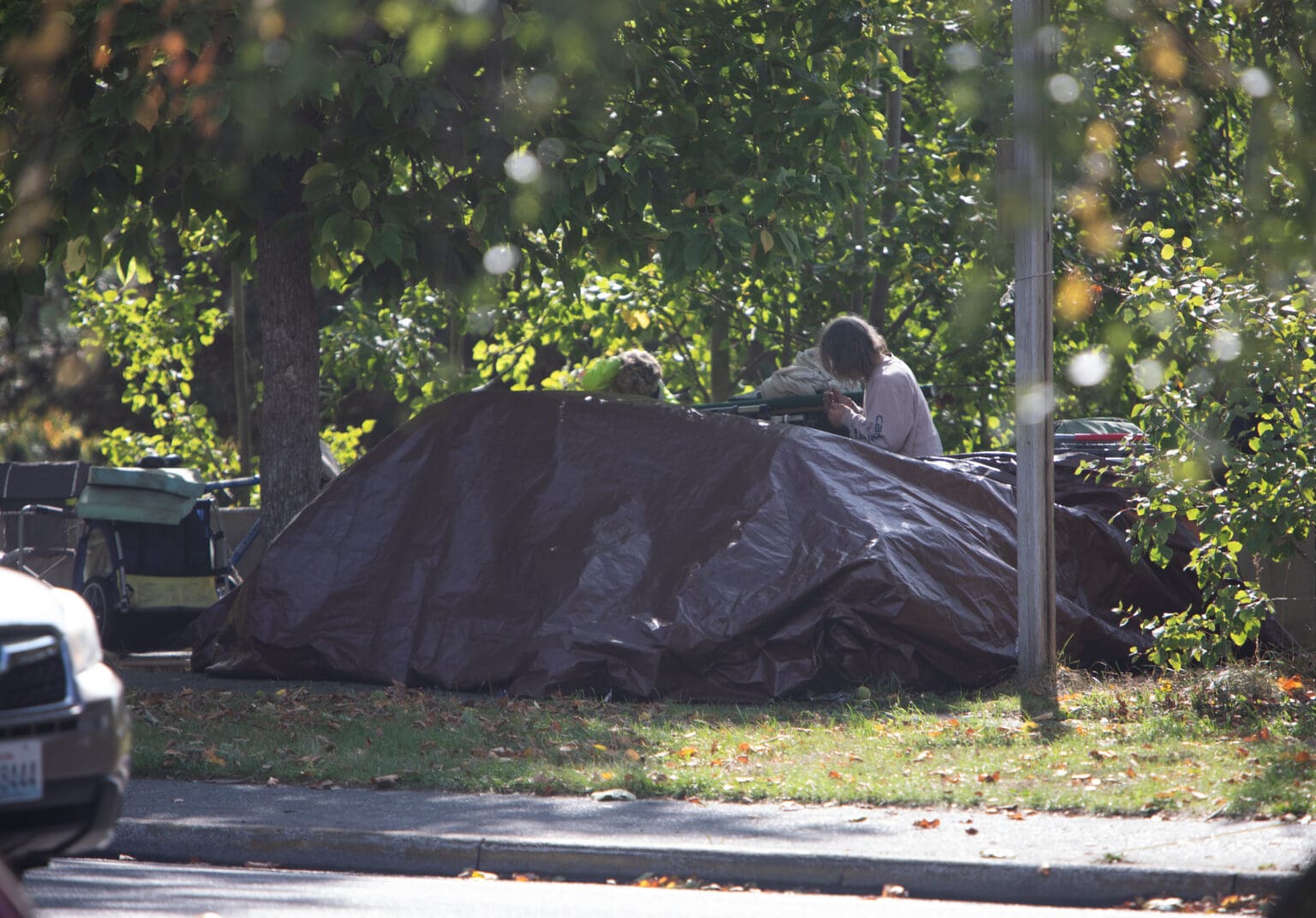What happens if you give a homeless person $7,500 with no strings attached?
A recent study out of the University of British Columbia (UBC) in Vancouver found that unconditional cash transfers can increase a homeless person’s savings, reduce the number of days a year they’re homeless and save the government money.
Could it happen in Bellingham? UBC researcher Jiaying Zhao thinks so.
The study gave 50 homeless people in Vancouver an unconditional CA$7,500 cash transfer. Recipients spent 99 fewer days homeless in the next year and saved the government an average of CA$777 annually by spending fewer nights in shelters.
Zhao said the study shows a chunk of the homeless population could “benefit hugely from this cash transfer.” She said it also challenges stereotypes of how homeless people will manage money, as the cash recipients did not increase their spending on alcohol, drugs or cigarettes.
Along with excluding people suffering with severe substance abuse or mental health issues, researchers only included people who had been homeless for less than two years, were citizens or permanent residents, and were between 19 and 65.
In a city like Bellingham, where homelessness is a key concern for both candidates and voters in the year’s election, Zhao thinks unconditional cash transfers would be worth a shot. In particular, Bellingham’s size makes it an ideal place to pilot a program like this.
“The city knows how much they’re spending on homelessness at this point, providing other social and health services. That’s an enormous amount of money,” Zhao said. “If cash transfer can save them money, that’s a no-brainer.”
Janice Keller, communications director at the City of Bellingham, said the city directs about $10 million each year to local housing programs “to serve those in critical need of housing support,” and in recent years, has allocated an additional $10 million in American Rescue Plan Act funding to housing and “related needs.” Keller noted this doesn’t include the “significant financial contributions to addressing these needs countywide” by the Whatcom County government.
The June 2023 Whatcom County Coalition to End Homelessness Point in Time Census counted 1,059 homeless people in the county, but experts say the number is likely higher.
Homeless populations in the county increased 27% from 2022, and numbers are rising across age and wage brackets, according to the report. Skagit County saw a 70% jump in the same period.

For most Bellingham City Council candidates, the study provides a promising option.
City Council Ward 1 candidate Eamonn Collins said direct cash transfer is an “effective policy solution” as people need money to secure housing.
He said a pilot program would be the most “politically palatable starting point” and suggested that groups like the Chuckanut Health Foundation or Western Washington University could “partner with the city to monitor and report outcomes, to prove the efficacy of this policy locally and built support for expansion.”
Ward 1 incumbent Hannah Stone said this direct assistance could be beneficial but noted the limitations as to who could take part in the study.
Stone noted that the researchers lost touch with half of those who passed the initial screening because they didn’t have a stable address, phone number or email address.
“Through this pilot study, I think we can learn more about the significant obstacles that community members face when they are unsheltered,” she said.
Ward 3 incumbent candidate Daniel Hammill said he would want to see how cash assistance could “help provide a pathway to permanent housing for those experiencing homelessness.” He wrote in an email that the study’s exclusion of those with substance use disorder and mental illness leaves out an important population.
“I support our community’s programs like LEAD, community paramedic and GRACE that provide assistance for homeless and vulnerable neighbors,” Hammill said in an email. “All have a track record of being highly effective, largely in part because of the wraparound services they provide.”
Hammill’s challenger Liz Darrow said cash assistance is something Bellingham should investigate.
“Providing a floor beneath which we won’t let people fall is our civic responsibility as a community. Everyone does better when everyone does better, so I support trying any mechanism to keep people fed, clothed and housed.”
At-large candidate Jace Cotton wrote in an email that Bellingham should consider pilot studies for “homeless community members, people exiting domestic violence, people exiting incarceration and people with work-limited disabilities.”
“The recent sharp increases in the numbers of homeless seniors and families, as well as growing waitlists for rental assistance, show existing approaches and funding are insufficient, and also often include too many barriers for those that would benefit,” he said. “Temporary direct rehousing assistance is worthy of exploration as a complementary approach.”
Russ Whidbee, Cotton’s opponent, said there are “big differences” between Vancouver and Bellingham — namely structural differences — and instead, he supports increased shelter infrastructure to assist people transitioning out of homelessness.
“This would comply with the 9th Circuit Court of Appeals Martin v. Boise decision and allow our community to consider setting more healthy boundaries through local legislation and getting people the help they need,” Whidbee wrote in an email. “Increasing the pathways to stable housing and partnering with proven nonprofit organizations is the most effective and compassionate use of taxpayer dollars.”
Darrow added that cash transfers wouldn’t be a foolproof solution. “It would do a lot of good, but we need to look at short- and long-term solutions for housing,” she said.
In the spring, a bill to implement the Evergreen Basic Income Pilot — a statewide guaranteed income that would give cash to cover the fair market rent of a two-bedroom apartment to very low-income adults — died in the Washington state Legislature.
A previous version of this story misstated that the Point in Time Census counted 1,059 homeless people in Bellingham. The Point in Time census counted 1,059 homeless people in Whatcom County. The story was updated to reflect this change on Oct. 7, 2023 at 10:51 a.m. Cascadia Daily News regrets the error.




